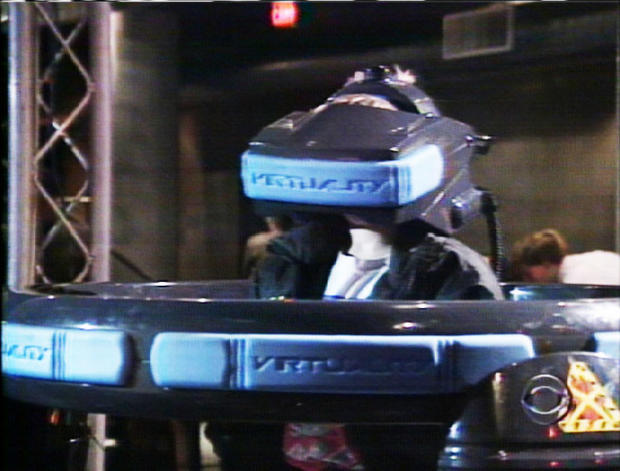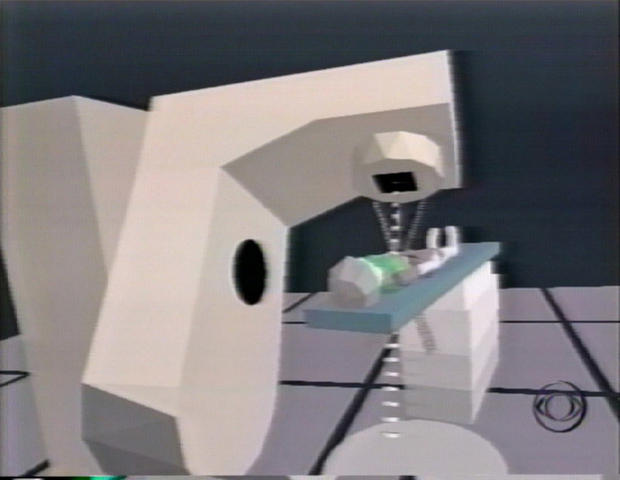The fear of virtual reality in 1992
When people speak of virtual reality nowadays, it's less science fiction and more science fact. The industry is poised to bring in revenues of $150 billion by the year 2020, according to a report by Digi-Capital. But just 23 years ago, virtual reality was still a foreign concept, something for rich tech nerds, not yet ready for primetime.
This "detached" new industry caught the attention of the "CBS Evening News" in 1992. Former CBS News correspondent Erin Hayes had the task of explaining virtual reality -- its challenges, benefits and the fear that accompanied it.
The report prominently featured video games, showing people in bulky bug-eyed helmets with pistol grips.
"Their helmets send signals to a computer," explained Hughes. "When they duck it tells their character to duck."
In 1992, buying VR technology for personal use ranged from the thousands to the millions of dollars. But experts predicted the technology would eventually get cheaper.
"The same way that personal computers became cheaper, that calculators became cheaper, the same technologies that are used there are used here," said Henry Fuchs, of the University of North Carolina.
Fuchs was right. The new Oculus Rift, a VR headset, goes for $350 and creates an atmosphere far more believable than the crude pixelated graphics of 1992.
Virtual reality's usage also has dramatically evolved over the last two decades. In her story, Hayes cited the use of VR in playing video games, training pilots, ultrasounds, and architecture. Today virtual reality is used in almost every way imaginable, from helping teenagers learn to drive to convincing people to save for retirement.
Though there was clear excitement surrounding the future of VR, there also was the usual fear that tends to accompany new ideas. In VR's case, the concern was that the technology would be so refined it could be used for pornography, addiction, and violence.
"If you are in a virtual world and you have an office model of your office and you pick up a virtual shotgun and blow your boss away because it might be amusing, then does that blur the line between the activities you do in fantasy and the activities you do in real life?" said author Howard Rheingold in 1992.
CBS News reached out to Rheingold, who says he stands by his decades old comments.
"Aren't we seeing on a different scale that people are ignoring and crashing into each other while they are walking or driving around while fascinated by their screens," said Rheingold.
Regardless of the risk it may pose, big names are going all in on virtual reality. Facebook CEO Mark Zuckberg called his $2 billion purchase of Oculus Rift a "long-term bet" on the future of computing.
And that's the way it was on Friday, February 14, 1992.
For more reports from the CBS News archives, visit our series The Way it Was


